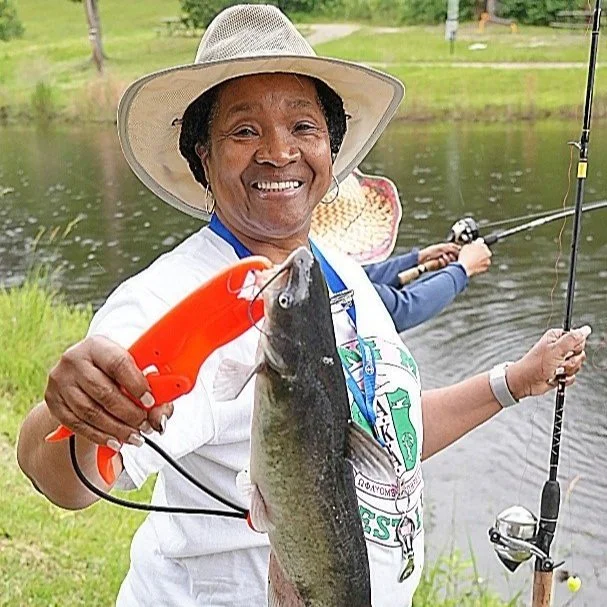After a full week of lower prices, the market renewed its teasing with four consecutive days of higher moves. That appeared positive until one realized that the weekly March settlement was only 65.63 – up a few meager 10 or so points on the week.
Read MoreLouisiana farmers, along with their counterparts across the nation, are urging Congress to pass a new farm bill this year, expressing concerns that the current safety net is inadequate to address rising costs. The urgency was palpable at the American Farm Bureau Convention in San Antonio, where attendees packed a session on the upcoming farm bill.
Read MoreTwelve Southern University College of Agricultural, Human and Environmental Sciences students had a once-in-a-lifetime opportunity to participate in Super Bowl LIX events.
The students, who are members of the Southern University chapter of Minorities in Agriculture, Natural Resources, and Related Sciences (MANRRS), the Southern University Dietetic Internship Program, and student scholars with the 1890 Center of Excellence (COE) at Southern University, participated in the Super Bowl’s Taste of the NFL 2025 on Saturday, Feb. 8, 2025, at The National WWII Museum in New Orleans.
Read MoreLargely driven by a surge in disaster and economic government assistance, USDA’s latest farm income forecast projects a significant but misleading rebound in net farm income for 2025, rising to $180.1 billion — a $41 billion (29.5%) increase over 2024 and following two years of sharp declines. USDA also adjusted its 2024 estimate downward in this update, now projecting net farm income at $139.1 billion, reflecting an $8.2 billion (5.6%) decline from 2023. This is lower than the $140.7 billion (a $6 billion, or 4.1%, decline) forecast in December 2024, showing that farm sector profitability in 2024 was weaker than previously estimated.
Read MoreThe Louisiana Department of Wildlife and Fisheries (LDWF) and the Louisiana Wildlife and Fisheries Foundation (LAWFF) are teaming up to present two Women’s Fishing 101 Workshops this spring. The workshops are open to women over the age of 18 who are looking to become knowledgeable and confident anglers.
The workshops cover a variety of skills to help make fishing even more enjoyable. LDWF biologists and aquatic volunteer instructors will train 15 women per event in fish identification, best fish handling practices, preparing fishing equipment, basic fishing skills, as well as cleaning, storing, and cooking fish.
Read MoreLouisiana, which lawmakers said has become overrun with alligators, plans to extend the 2025 hunting season for the wild reptiles.
The Louisiana Wildlife Commission approved a notice of intent this week to set the East Zone season from the last Wednesday in August until Dec. 31 and the West Zone season from the first Wednesday in September until Dec. 31.
Read MoreIt’s a new year and there’s a new Congress in town! It’s time for a refresher on how sugar is made in America. This is the first in our new series of Sugar Beat newsletters covering the basics of sweet – so stay tuned for more Sugar 101.
Read MoreA meat processing plant that has been on Southern University's campus for more than 40 years thanks to one man's hard work is slated to receive an upgrade.
The plant has been operating since 1972 thanks to funds secured by the late Dr. George E. Robinson Jr., who once served as the dean of Southern's School of Agriculture.
Read MoreOn January 31, the Louisiana Department of Agriculture and Forestry (LDAF) personnel reported several items stolen from the LDAF Plainview Tower building in Rapides Parish. Stolen items included a 2021 Honda ATV, a burn tank sprayer, a Stihl chainsaw, and a Stihl backpack blower.
Read MoreGrowing up in Acadia Parish, Kathryn LeBlanc had a dream of one day being a veterinarian. Her family was involved in rescuing dogs, and the idea of making a career that would allow her to help animals in need intrigued her.
Read MoreThe optional Supplemental Coverage Option (SCO) endorsement provides additional coverage for a portion of an individual producer’s underlying crop insurance policy deductible. The basic operational mechanics of the SCO endorsement follows/ ‘mirrors’ underlying policy coverage. If the producer purchases a yield protection (revenue protection) policy, then SCO covers yield loss (revenue loss). The amount of coverage depends on the liability, coverage level, and approved yield for the underlying policy.
Read MoreThe Enhanced Coverage Option (ECO) allows producers to supplement their current underlying individual insurance coverage and provides area-based coverage for a portion of the deductible of the producer’s underlying policy in a manner like the Supplemental Coverage Option (SCO). ECO utilizes the same expected and final area yields, projected and harvest prices, and payment factors as SCO but covers a band from 86% (where SCO coverage ends) up to 90% or 95% of expected crop value. Like SCO, ECO is based on a producer’s underlying insurance coverage.
Read MoreU.S. Representatives Tracey Mann (KS-01) and Jimmy Panetta (CA-19), alongside House Agriculture Committee Chairman G.T. Thompson (PA-15), and House Agriculture Committee Ranking Member Angie Craig (MN-02) led 74 of their colleagues in reintroducing the bipartisan Family Farm and Small Business Exemption Act. In July 2024, provisions from the Federal Application For Student Aid (FAFSA) Simplification Act altered the federal formula for determining student aid.
Read MoreThere’s nothing quite like pecans. With their rich, buttery flavor, these nuts are a staple of Louisiana culture and cuisine.
If you’d like to produce your own pecans, November through March is an ideal time to plant these trees. There are a few considerations to take into account first.
Read MoreA $22 million project involving the LSU AgCenter has been paused while the Trump administration reviews spending at the U.S. Agency for International Development (USAID).
LSU is part of the Feed the Future Climate Resilient Cereals Innovational Lab, which researchers at Kansas State University lead. It seeks to make cereal crops – such as rice, wheat, miller and sorghum – more readily available to those at risk of hunger, according to an AgCenter blog post.
Read More














